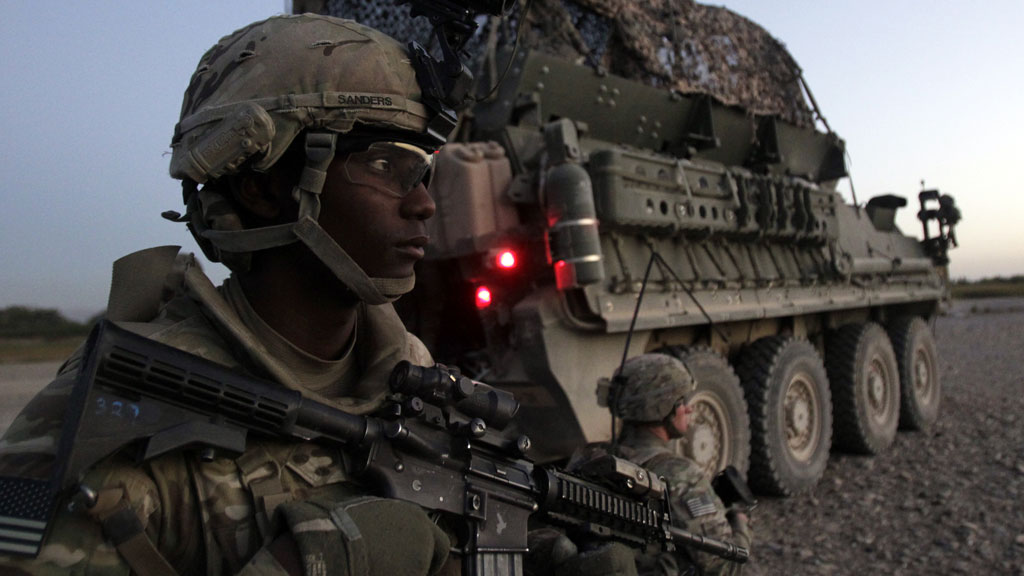Obama’s second term: global challenges
Want a legacy? Then look abroad – for a chance to leave an impact on the world. But will America’s role be much more limited – as Obama’s new team seeks continuity, not change?

In his first years in office – he won the Nobel prize – and promised a new kind of engagement with the rest of the world. Four years ago, in Cairo, President Obama pledged to reach out to new allies, rather than interfering with the affairs of other countries.
The new president seemed to herald a new focus, away from old enemies and towards the world’s new economic powerhouses in the Asia-Pacific region. The Obama doctrine, if one existed, was to be about exerting a positive influence on the world rather than aggressive intervention.
“No system of government can or should be imposed upon one nation by any other”, he insisted.
He might have quoted John Quincy Adams, who said that America “does not go abroad in search of monsters to destroy. She is the well wisher to freedom and independence of all… (but the) champion and vindicator only of her own.”
But in 2013 it still seems premature to speak of an Obama doctrine. The foreign policy he has pursued during the first term, at least, seems little different from that of the Bush administration, despite the decision to pull US forces out of Iraq and Afghanistan.
No system of government can or should be imposed upon one nation by any other. Barack Obama, 2009
In the midst of the Arab Spring, Obama did make another attempt to explain the philopsophy behind his world view: “After decades of accepting the world as it is in the region, we have a chance to pursue the world as it should be.”
He talked of humility, rather than hubris: the people had launched these revolutions, he said, and it was the people who should determine their outcome.
Perhaps this was intended to signal a more distanced relationship with foreign conflicts: not so much troops on the ground, and more like the escalation in drone strikes and targeted assassinations which have so dismayed his liberal base.

Subject to Congressional approval, of course, there is a new team in charge of foreign and security policy: and in John Kerry, Chuck Hagel and John Brennan, Obama has indicated a resounding vote of support for the status quo.
Much has been made of Hagel and Kerry’s service in Vietnam, an experience which has doubtless shaped their attitude towards the merits of foreign intervention: these are men who would be highly unlikely to commit American forces to Syria, or provoke any confrontation with Iran.
Libya, perhaps, might not have happened under their watch.
All that would fit with what has been described as Obama’s realist approach: as the former foreign policy planning chief at the state department, Anne Marie Slaughter, told the National Journal: “This is a guy who’s not going to waste our money and risk the lives of American soldiers unless he absolutely has to.”
Safety, first
A policy of restraint looks all the more realist given the huge cuts to come in the military budget, another task to be shouldered by Chuck Hagel at defence. Spreading military resources too wide will simply not be an option: the repeated requests for military aid by Syria’s opposition are likely to go unheeded.
And for all the talk about moving on from the thankless task of trying to bring peace to the Middle East, the US will hardly be able to walk away: nor can the administration duck the issue of what is to happen to Afghanistan once the troops are gone, taking millions of dollars in business with them.
The analyst Robert Kaplan said the theme of the second term would echo the first – reinforced by the lesson of what happened in Iraq: “Pragmatism will reign supreme, even as there will be little appetite to take authentically risky inititatives, whether diplomatic, military or otherwise.”
But – unforseen crises aside – Obama has shown a particular reluctance to seek his presidential legacy abroad – nation building, he has said, should begin at home. He has domestic challenges a-plenty, not least the new priority of pioneering gun control through a hostile Congress.
The second term may not be a choice between idealism or realism, but that more prosaic of masters: pragmatism. At a time when Americans are yearning for leadership – the world, perhaps, will have to wait.
Felicity Spector writes about US politics for Channel 4 News




